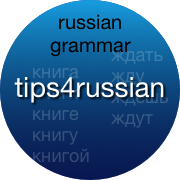Russian Participles: an Overview
What are participles?
Russian participles take the idea of a verb – an action – and use it to describe someone or something.
This may remind you of forms like “a talking parrot,” “a broken window,” “der fliegende Holländer,” (the flying Dutchman), “de l’eau courante” (running water). Russian participles are different in some ways from these examples, though, so in this course we’ll cover them step-by-step, with special attention to how they are used (and not used) in modern Russian.
Why are they important?
You probably never needed to think about participles when you began studying Russian. That’s because they are not used often in everyday conversation.
But they are quite common in written Russian, and also in spoken Russian in formal contexts, like speeches or lectures. If you want to read Russian prose, documents, or business letters, fill in forms, or understand spoken Russian in formal situations, learning participles will be a great help to you.
